
Introductionto Insomnia
Everyone, at one point or another, has experienced insomnia. It can happenoccasionally, as a consequence of a stressful lifestyle, or it can be a chroniccondition. An estimated 30%-50% of the generalpopulation are affected by insomnia, and 10% have chronic insomnia.In this day and age, especially because of the way of life most of people lead,it has become one of the most urgent problems to be resolved. It can seriouslyaffect one’s life. Lack of sleep may lead to poor concentration, feeling sleepy,anxious, irritable, etc. Insomnia can sap not only one’s energylevel and mood, but also their health, work performance and overall quality oflife.
Insomnia is itself often a symptom of other problems, rather than being acondition on itself. Typical patterns of insomnia include the inability to fallasleep or stay asleep at night.
There are two types of insomnia:primary and secondary insomnia. In primary insomnia, the person has sleepproblems, but they are not directly linked to any other health condition.Secondary insomnia means that the sleep problem is caused by a health problem.
Also, insomnia is classified bythe duration of the problem. In this classification, it can be transient (itmeans that the problem has lasted less than one week), short-term (it haslasted from one to three weeks) and chronic (it has lasted longer than threeweeks).
Causes
There are a lot of things thatcan cause insomnia. Among the most harmless are: excessive noise, jet lag,stressful situations, uncomfortable room temperature, caffeine, nicotine, etc. Theseusually cause transient insomnia.
Other, more harmful reasons forinsomnia may be schizophrenia, depression (and manic depression), anxiety, acidreflux disease, obstructive sleep apnea, brain tumors, chronic pain syndrome, somedegenerative diseases (such as Parkinson’s or Alzheimer’s disease, etc.), andother, serious medical conditions. It is, therefore, important that people whosuffer from chronic insomnia consult a physician. He can run the necessary teststo determine the cause and treat it.
Symptoms
The most common symptoms of insomnia are: difficulty sleeping during the night,awakening during the night or too early, irritability, headaches, lack ofconcentration on daily chores, daytime fatigue and sleepiness, depression, notfeeling rested after a night’s sleep, an noticeable increase of errors, etc.
Cures
If the insomnia is caused by an underlying condition, its treating shouldimprove the insomnia symptoms, too.
One of the main reasons forinsomnia is stress. To relieve stress, one should find its cause and get rid ofit.
Also, there are various relaxation techniques and exercises to help one notonly deal with stress, but, sleep better.
In case none of the alternative therapies work,it is always possible to talk to a doctor about taking sleeping medication.However, this is the least desirable way of treatment (because that medication ishighly addictive).
There are behavior therapies that teach new sleep behaviors and ways to make one’ssleeping environment more conducive to sleep. Some studies have shown behaviortherapies are equally or more effective than sleep medications.







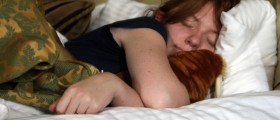

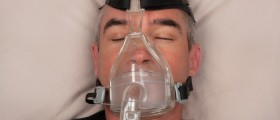
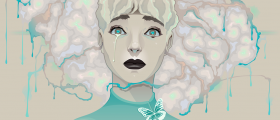


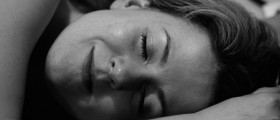
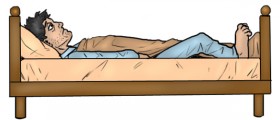


Your thoughts on this
Loading...